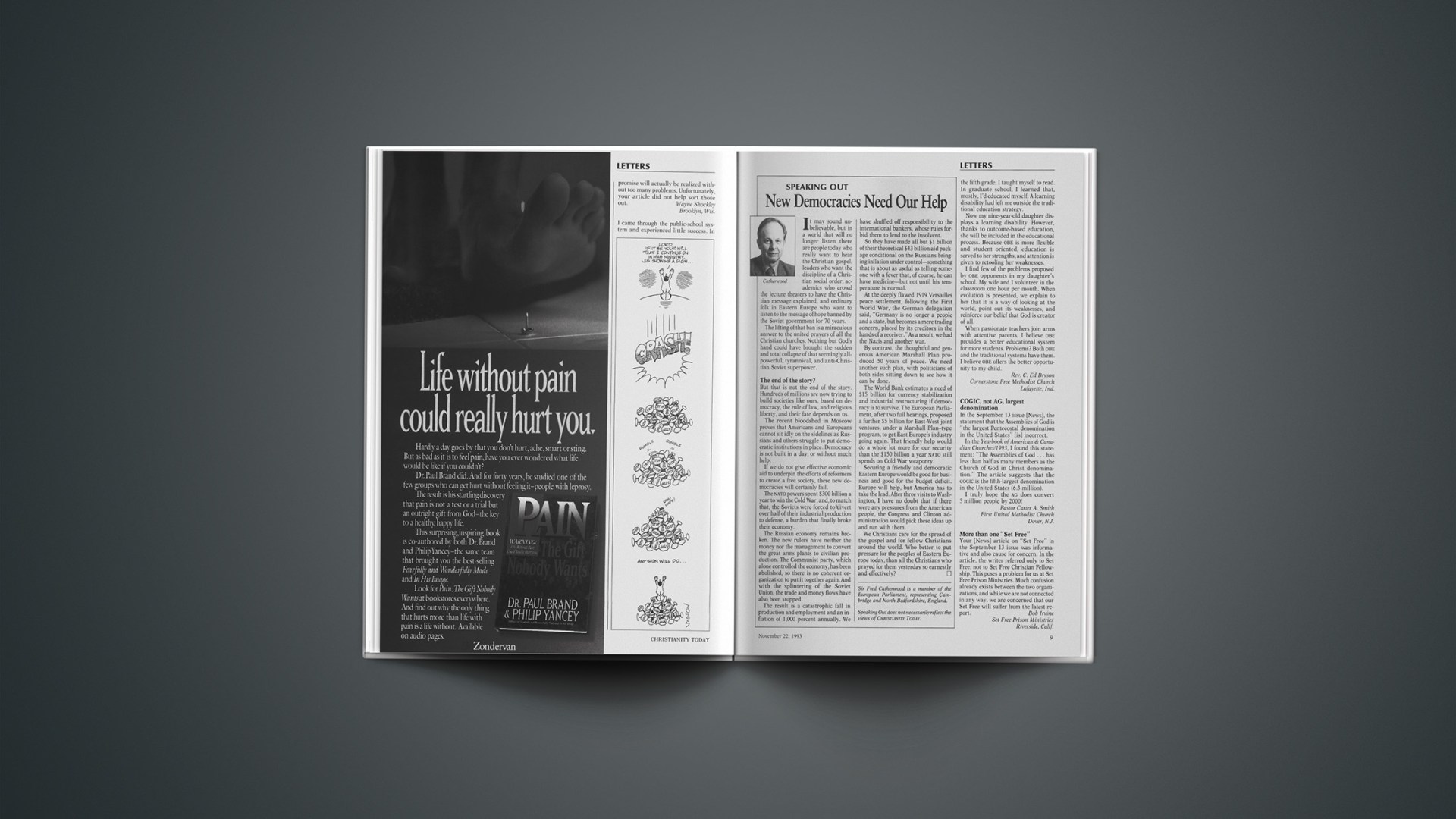It may sound unbelievable, but in a world that will no longer listen there are people today who really want to hear the Christian gospel, leaders who want the discipline of a Christian social order, academics who crowd the lecture theaters to have the Christian message explained, and ordinary folk in Eastern Europe who want to listen to the message of hope banned by the Soviet government for 70 years.
The lifting of that ban is a miraculous answer to the united prayers of all the Christian churches. Nothing but God’s hand could have brought the sudden and total collapse of that seemingly all-powerful, tyrannical, and anti-Christian Soviet superpower.
The end of the story?
But that is not the end of the story. Hundreds of millions are now trying to build societies like ours, based on democracy, the rule of law, and religious liberty, and their fate depends on us.
The recent bloodshed in Moscow proves that Americans and Europeans cannot sit idly on the sidelines as Russians and others struggle to put democratic institutions in place. Democracy is not built in a day, or without much help.
If we do not give effective economic aid to underpin the efforts of reformers to create a free society, these new democracies will certainly fail.
The NATO powers spent $300 billion a year to win the Cold War, and, to match that, the Soviets were forced to divert over half of their industrial production to defense, a burden that finally broke their economy.
The Russian economy remains broken. The new rulers have neither the money nor the management to convert the great arms plants to civilian production. The Communist party, which alone controlled the economy, has been abolished, so there is no coherent organization to put it together again. And with the splintering of the Soviet Union, the trade and money flows have also been stopped.
The result is a catastrophic fall in production and employment and an inflation of 1,000 percent annually. We have shuffled off responsibility to the international bankers, whose rules forbid them to lend to the insolvent.
So they have made all but $1 billion of their theoretical $43 billion aid package conditional on the Russians bringing inflation under control—something that is about as useful as telling someone with a fever that, of course, he can have medicine—but not until his temperature is normal.
At the deeply flawed 1919 Versailles peace settlement, following the First World War, the German delegation said, “Germany is no longer a people and a state, but becomes a mere trading concern, placed by its creditors in the hands of a receiver.” As a result, we had the Nazis and another war.
By contrast, the thoughtful and generous American Marshall Plan produced 50 years of peace. We need another such plan, with politicians of both sides sitting down to see how it can be done.
The World Bank estimates a need of $15 billion for currency stabilization and industrial restructuring if democracy is to survive. The European Parliament, after two full hearings, proposed a further $5 billion for East-West joint ventures, under a Marshall Plan-type program, to get East Europe’s industry going again. That friendly help would do a whole lot more for our security than the $150 billion a year NATO still spends on Cold War weaponry.
Securing a friendly and democratic Eastern Europe would be good for business and good for the budget deficit. Europe will help, but America has to take the lead. After three visits to Washington, I have no doubt that if there were any pressures from the American people, the Congress and Clinton administration would pick these ideas up and run with them.
We Christians care for the spread of the gospel and for fellow Christians around the world. Who better to put pressure for the peoples of Eastern Europe today, than all the Christians who prayed for them yesterday so earnestly and effectively?
Sir Fred Catherwood is a member of the European Parliament, representing Cambridge and North Bedfordshire, England.
Speaking Out does not necessarily reflect the views of CHRISTIANITY TODAY.










